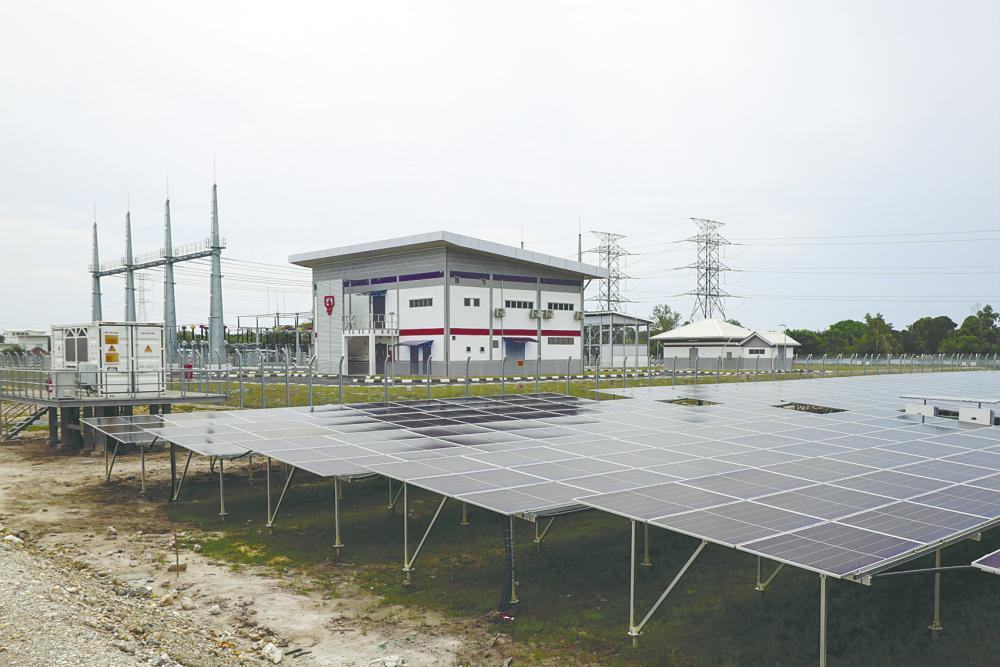RESEARCH grants and funding schemes, especially those given
by government ministries, are increasingly focused on areas such as artificial intelligence, green energy, big data, health and security.
These are undoubtedly important fields but we must also consider the potential of other emerging areas, such as quantum and optical science and technology, which hold tremendous promise for the future.
The Newton-Ungku Omar Fund (NUOF) is a great initiative supporting themes such as creative economy and cultural heritage, energy, food, water, environment and mental health. These are relevant to many current challenges.
However, there is room for a broader focus, especially in areas that could significantly shape the future of our high-tech industries, such as technologies based on the science of light and quantum physics. Sir Isaac Newton’s work in these fields revolutionised our understanding of the physical world, and NUOF can aim to build on that legacy.
Conducting impactful research is similar to planting seeds for the future. It requires time, patience and sustained support before bearing fruit, and when it does, the benefits are substantial and revolutionary – improving quality, fostering innovation and driving technological advancements.
This long-term view is crucial for fostering disruptive technologies and enhancing Malaysia’s global standing in scientific research. For example, programmes such as the High
Impact Research project at Universiti Malaya have brought international recognition, and thus collaborations to local research.
For Malaysia to become an industrialised and developed nation, our industries must evolve from assembly-based operations to high-technology design and fabrication, supported by strong research and development (R&D) and fundamentals. This shift is not only vital for economic competitiveness but also for the survival of industries.
As noted by Top Glove CEO Tan Sri Lim Wee Chai, businesses that invest in R&D are better positioned to lead globally.
A key area of focus should be industries based on optical technologies. Products such as solar panels, flexible phones, high-resolution cameras, medical optical probes and optical sensors – transformative technologies in everyday life – are driven by advances in quantum and photon science.
Countries around the world are recognising this and investing
heavily in research, and are setting up centres of photonics and quantum technologies.
Unfortunately, in Malaysia, quantum and photon science has yet to receive the same level of attention and support despite its potential to shape future industries.
A small number of dedicated scientists are working in this field but they could benefit from more robust backing. Expanding our focus to include these emerging fields will position Malaysia to be at the forefront of global technological advancements.
The exciting breakthroughs in quantum and photon science – such as secure quantum communication networks, high-resolution imaging, ultrasensitive sensing, high-
precision time standards, nanolasers, ultrashort attosecond pulses and optical coherence tomography – are solving previously insurmountable challenges and offering innovations that enhance security, defence, healthcare and quality of life.
However, for Malaysia to capitalise on these opportunities, we must embrace a forward-looking approach to research funding.
While we have many centres of excellence, there is still room to incorporate cutting-edge topics such as quantum information science and ultrafast, high-intensity laser research. These fields are central to the global research landscape. Malaysia can make significant contributions as it has the talent and the potential.
Institutions that conduct research need strategic and sustained investment to build their research powerhouses in these fields. With increased and sustained support, these institutions can cultivate a generation of researchers who can propel Malaysia into the future of optical and quantum technologies.
By investing in quantum and photon science, Malaysia can develop advanced optical industries and secure its place as a leader in future technologies.
The writer is an elected fellow of the Academy of Sciences Malaysia, and a professor of quantum physics at the Faculty of Science,
Universiti Malaya. Comments: letters@thesundaily.com









